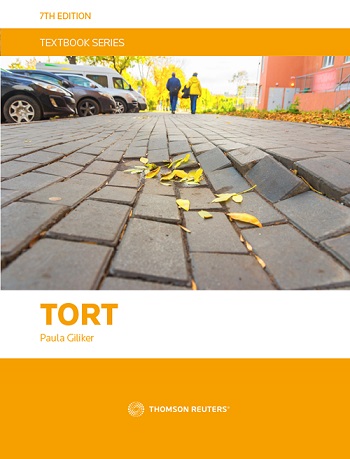
What is tort?
Tort is the law of civil wrongs. This means behaviour which the law regards as wrongful and which gives rise to a remedy of damages or other relief, such as an injunction. The most important tort is that of negligence. The tort of negligence protects those injured by a failure to take reasonable care by a person who owes them a duty of care. Other torts include nuisance, defamation, trespass to land, battery, assault, false imprisonment and misuse of private information.
Giliker's Tort law textbook presents an accessible and current picture of the law of torts and is ideal for those approaching the subject for the first time. The text succinctly covers all the major concepts in the law of torts and clearly illustrates how they work in practice by reference to the major cases in this field and the main statutory provisions.
The seventh edition covers key legislation and cases including significant Supreme Court decisions on the tort of negligence (Robinson v Chief Constable of West Yorkshire Police, Darnley v Croydon Health Services NHS Trust and Poole BC v GN), pure economic loss (Playboy Club London Ltd v Banca Nazionale del Lavoro SpA and Steel v NRAM Ltd), false imprisonment (R (Jalloh) v Secretary of State for the Home Department), defamation (Lachaux v Independent Print Ltd and Serafin v Malkiewicz) and the doctrine of vicarious liability (Armes v Nottinghamshire CC, Barclays Bank plc v Various Claimants and Wm Morrison Supermarkets plc v Various Claimants). It also considers the important privacy case of Richard v BBC and damages case of Whittington Hospital NHS Trust v XX.
Tort is an essential textbook for those studying law at degree or graduate diploma level. Its clarity and comprehensive coverage also make it an indispensable resource for those on modular or PGDL courses.